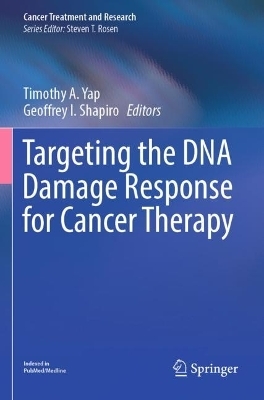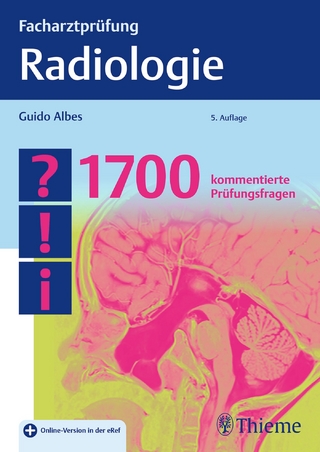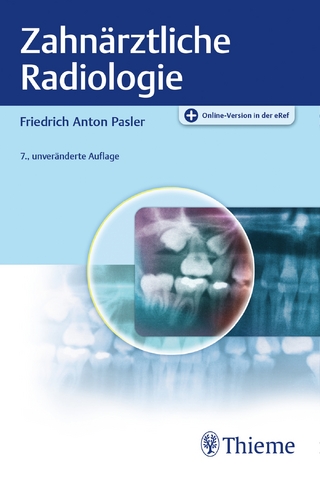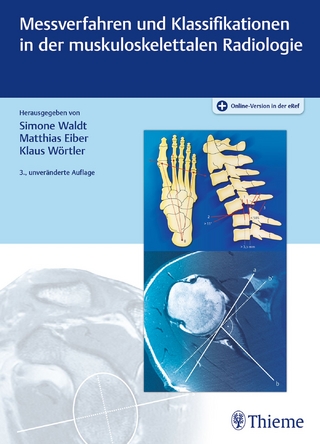
Targeting the DNA Damage Response for Cancer Therapy
Springer International Publishing (Verlag)
978-3-031-30067-7 (ISBN)
Targeting the DNA Damage Response for Cancer Therapy comprehensively reviews the application of PARP and other DDR inhibitors across oncology disciplines. Therefore, it is a valuable resource for all medical professionals and researchers who use or who are researching the use of these inhibitors on a day-to-day basis.
Dr. Timothy A. Yap is a Medical Oncology Physician-Scientist and tenured Professor based at the University of Texas MD Anderson Cancer Center. He is a Professor in the Department for Investigational Cancer Therapeutics (Phase I Program), and the Department of Thoracic/Head and Neck Medical Oncology.
Dr. Yap is Vice President and Head of Clinical Development in the Therapeutics Discovery Division, a drug discovery biopharmaceutical division where drug discovery and clinical translation are seamlessly integrated.
He is also the Associate Director of Translational Research in the Institute for Personalized Cancer Therapy, which is an integrated research and clinical trials program aimed at implementing personalized cancer therapy and improving patient outcomes.
Dr. Yap's main research focuses on the first-in-human and combinatorial development of molecularly targeted agents and immunotherapies, and their acceleration through clinical studies using novel predictive and pharmacodynamic biomarkers. His main interests include the targeting of the DNA damage response (DDR) with novel therapeutics through clinical trials and translational studies. These including targets such as ATR, PARP1, WEE1, POLQ, USP1, PARG, CHK1, ATM and DNA-PK inhibitors, next generation CDK4 and CDK2-selective inhibitors, WRN inhibitors, SMARCA2 inhibitors, YAP/TEAD inhibitors, as well as the development of novel immunotherapeutics.
Prior to his current position, Dr. Yap was a Consultant Medical Oncologist at The Royal Marsden Hospital in London, UK and National Institute for Health Research BRC Clinician Scientist at The Institute of Cancer Research, London, UK.
Dr. Shapiro currently serves as Senior Vice President, Developmental Therapeutics, at the Dana-Farber Cancer Institute (DFCI). In this role, he co-leads the Developmental Therapeutics Program for theDana-Farber/Harvard Cancer Center (DF/HCC) as well as the Cancer Center's activities in the NCI-Cancer Therapy Evaluation Program (NCI-CTEP) Experimental Therapeutics Clinical Trials Network (ETCTN). He additionally serves as the Clinical Director for the DFCI Center for DNA Damage and Repair, where he has developed multiple predictive and pharmacodynamic biomarkers for DNA repair inhibitor agents, including those targeting PARP, the ATR-CHK1-WEE1 axis, and polymerase theta. Dr. Shapiro practices within the DFCI Center for Cancer Therapeutic Innovation, where he develops and leads multiple early phase trials focused primarily on cell cycle and DNA repair inhibitor therapeutics and provides mentorship to early career investigators. He has made proof-of-mechanism studies a mission of his program and has worked closely with basic and translational scientists at his institution and elsewhere to establish robust preclinical rationale for many trials. He also leads a complimentary laboratory effort where he studies resistance to these agents and their interaction with the immune microenvironment to inform the development of rational combinations.
Evolution of the development of PARP inhibitors.- Exploiting cancer synthetic lethality in cancer - Lessons learnt from PARP inhibitors.- Mechanisms of PARP inhibitor resistance.- Development of homologous recombination functional assays for targeting the DDR.- Clinical application of Poly(ADP Ribose) Polymerase (PARP) inhibitors in ovarian cancer.- Clinical use of PARP inhibitors in BRCA mutant and non-BRCA mutant breast cancer.- Development of PARP inhibitors in targeting castration-resistant prostate cancer.- Strategies for the management of patients with pancreatic cancer with PARP inhibitors.- Combining poly (ADP-ribose) polymerase (PARP) inhibitors with chemotherapeutic agents: Promise and challenges.- Rational combinations of PARP inhibitors with HRD-inducing molecularly targeted agents.- Combining PARP inhibition and immunotherapy in BRCA-associated cancers.- Mitotic MTH1 inhibitors in treatment of cancer.- Targeting ATR in cancer medicine.- Targeting polymerase Theta (POLq) for cancer therapy.- Targeting DNA-PK.- WRN is a promising synthetic lethal target for cancers with microsatellite instability (MSI).
| Erscheinungsdatum | 19.11.2024 |
|---|---|
| Reihe/Serie | Cancer Treatment and Research |
| Zusatzinfo | X, 328 p. 30 illus., 27 illus. in color. |
| Verlagsort | Cham |
| Sprache | englisch |
| Maße | 155 x 235 mm |
| Themenwelt | Medizin / Pharmazie ► Medizinische Fachgebiete ► Onkologie |
| Medizin / Pharmazie ► Medizinische Fachgebiete ► Pharmakologie / Pharmakotherapie | |
| Medizinische Fachgebiete ► Radiologie / Bildgebende Verfahren ► Radiologie | |
| Schlagworte | BRCA mutant cancers • castration-resistant prostate cancer • DNA repair pathways • Homologous recombination • Inhibition • PARP trapping • Poly (ADP-ribose) polymerase • radiosensitization • Resistance mechanisms |
| ISBN-10 | 3-031-30067-X / 303130067X |
| ISBN-13 | 978-3-031-30067-7 / 9783031300677 |
| Zustand | Neuware |
| Informationen gemäß Produktsicherheitsverordnung (GPSR) | |
| Haben Sie eine Frage zum Produkt? |
aus dem Bereich


